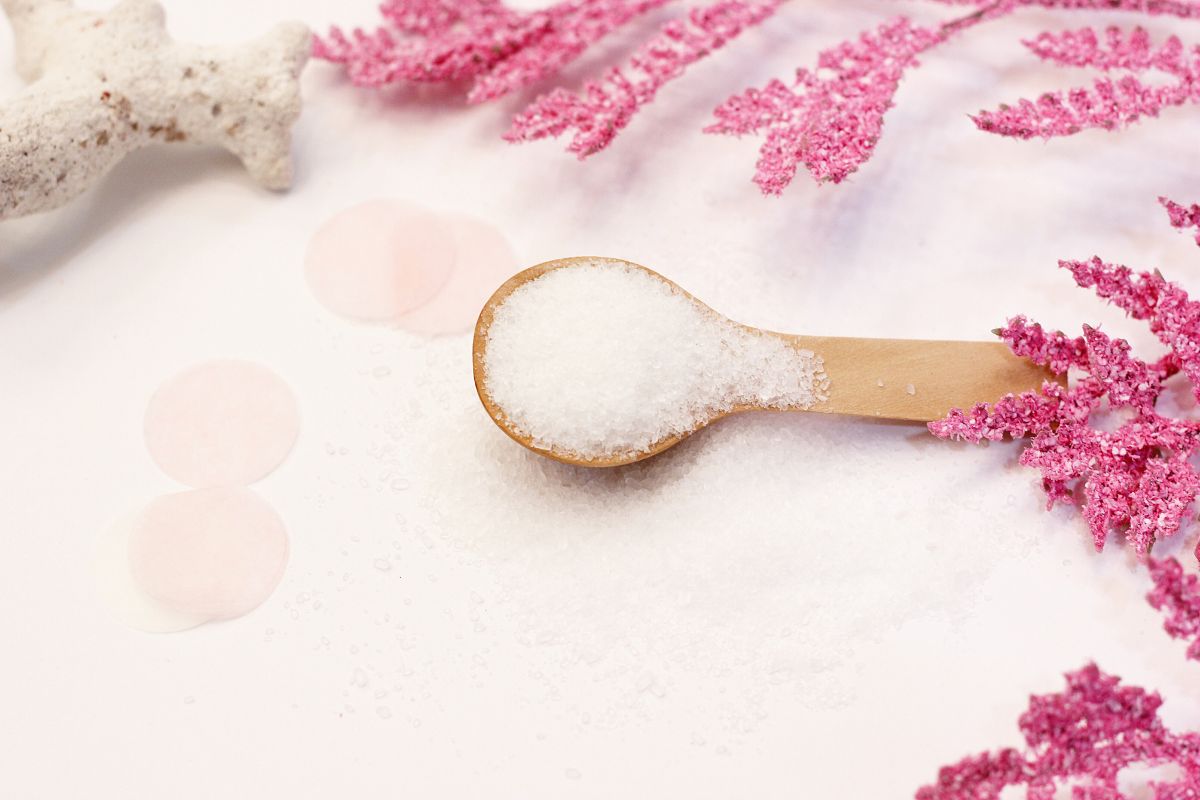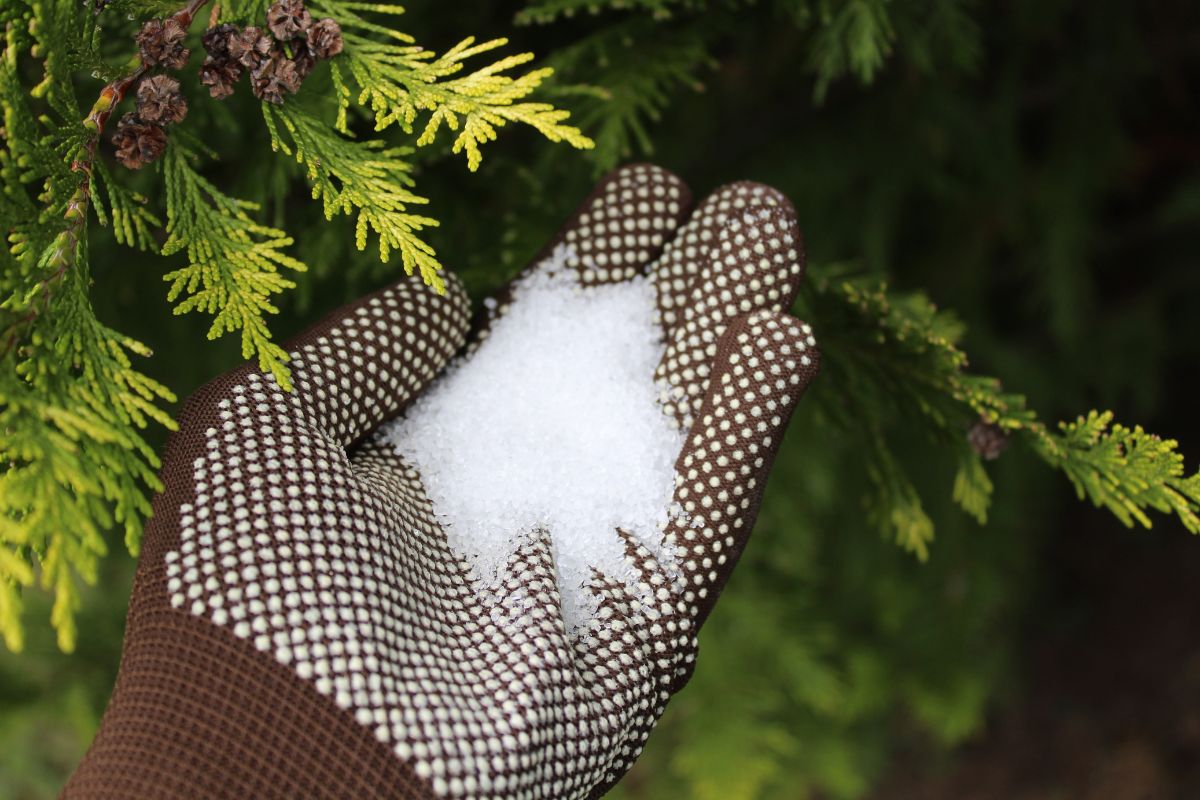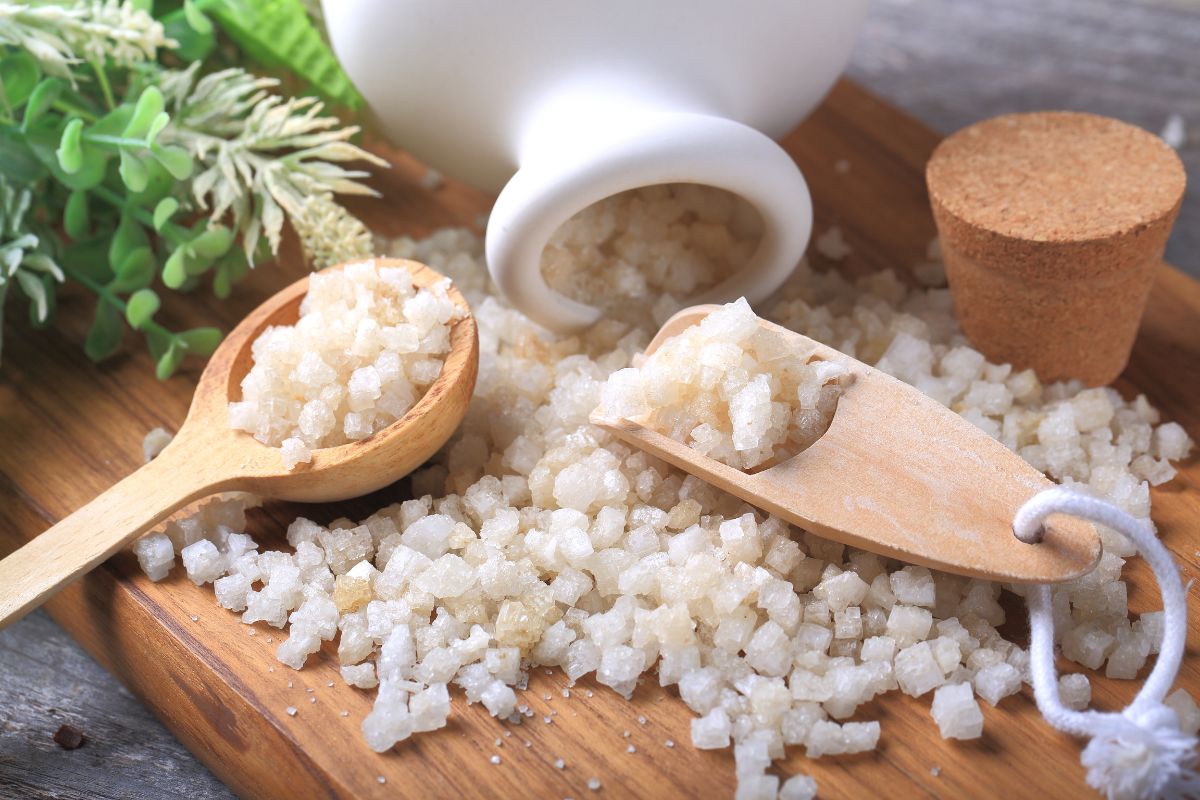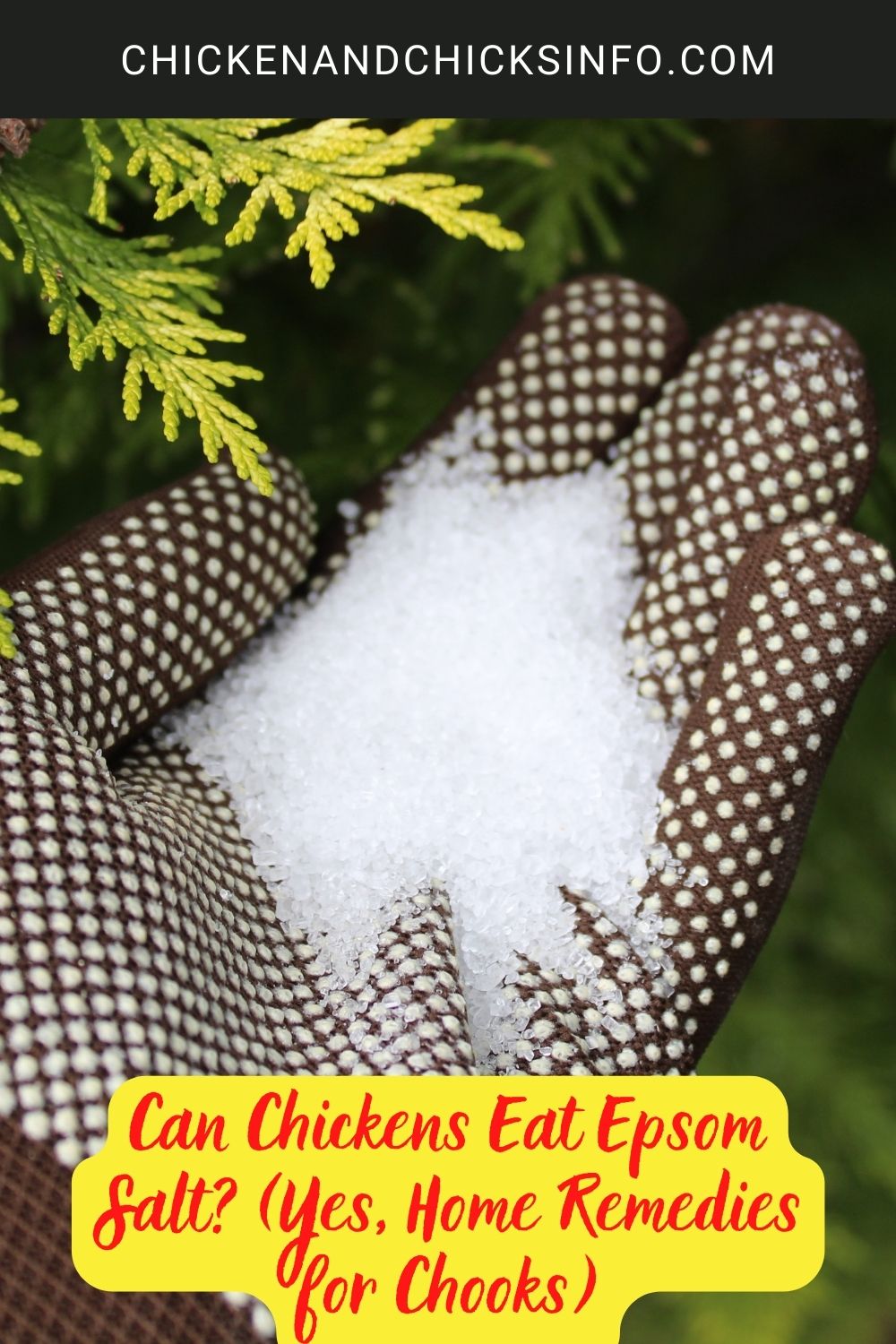
This post may contain affiliate links. Please read my disclosure for more info.
Epsom salt is one of the most popular substances for making home remedies to treat all kinds of skin conditions, aches and pains, digestive issues, and it has other therapeutic uses.
It’s also handy to help treat several ailments in chickens - or to just give them a relaxing bath.
If you’re wondering, can chickens eat Epsom salt? Or, want to know how to use Epsom salt it to treat some health issues within your flock, here’s what you need to know:
What Is Epsom Salt? What's in It?

Epsom salt is a chemical compound consisting of sulfur, magnesium, and oxygen.
It’s called “Epsom” salt because it was first discovered in a town called Epsom, in England. It’s very different from the salt we use with food though. It is safe to ingest in small amounts, but it’s not table salt.
Essentially, Epsom salt works by dissolving when it's added to water and releasing sulfate and magnesium ions.
These particles are then absorbed by the skin if it’s being used in a bath, or released into the body if being ingested.
Is Epsom Salt Safe for Chickens?

Epsom salt is perfectly safe for chickens when used correctly, yes.
In fact, there are various ailments in chickens Epsom salt is commonly used to treat:
Egg-Bound Hens
Egg binding or having an egg-bound hen means a chicken is struggling to pass an egg. The egg will literally be stuck inside the hen, usually just a couple of inches into their vent.
This can be fatal, especially if the egg breaks inside the hen. Your best course of action is to call an avian vet and seek advice, although I know that’s not always possible.
If you feel comfortable dealing with the problem yourself - or have no other option - the most common home treatment is an Epsom salt bath.
By soaking your hen in a warm Epsom salt bath for 10-20 minutes you’ll relax her muscles. You can then remove her and place her somewhere quiet to see if she can lay the egg naturally.
Skin Issues
The main benefit of taking an Epsom salt bath for us is to reduce pain, swelling, inflammation, and soothe skin issues.
If you’ve never had an Epsom bath, I recommend it! But, back on topic...
It’s no surprise that an Epsom bath can also help chickens with all of the above too. And chickens are prone to all kinds of skin ailments.
If your chicken has any of the following skin issues, such as; scaly legs, bumblefoot, bites from lice or mites, or anything else bothering them - why not give them an Epsom bath to see if it helps.
It’s very likely to help. At the very least, it’s going to give them a relaxing spa treatment.
In the case of bumblefoot, don’t be surprised if some of the black or brown scabs literally come off.
Constipation and Diarrhea

The magnesium in Epsom salt is effective for relief from constipation and diarrhea. It’s even been FDA-approved as a laxative.
Most chickens will literally try to eat anything they can get down their beaks, so digestive or crop issues are not that uncommon.
If you know one of your hens is dealing with either digestive issues or diarrhea, a dose of Epsom salt might just be the remedy.
The easiest way to get a dose into a chicken is by using a syringe. Simply mix 1 teaspoon of Epsom salt with an ounce of lukewarm water and gently syringe it directly into their beak.
Give them a dose either once, or twice a day if you catch her first thing in the morning. If this doesn’t clear up the problem after 2-3 days it’s likely you need to try something else.
If you need to treat your whole flock, just add 1 teaspoon per cup to their drinking water.
General Ailments
I’ve spoken with a lot of backyard chicken owners that keep some Epsom salt handy in case they start to spot any signs that they have a sick chicken on their hands.
If one of your flock has a pale or droopy comb, is acting lethargic, hasn’t laid an egg as expected, or is displaying any other signs of being sick, the first thing to try is an Epsom bath.
It’s amazing how many people say their chicken picks up afterward.
I also know a few people that have a spray bottle with diluted Epsom salts. They give their legs a spray now and then to keep scaly leg mites and other issues at bay.
In Summary
Chickens can eat Epsom salt, yes. It’s perfectly safe for them and even has some medicinal applications as covered above.
It really is one of the “miracle” home remedy substances. It’s inexpensive to buy, lasts for ages, and has loads of applications - I recommend picking up a bag, if not just for emergencies. (Or to take a bath with yourself)





